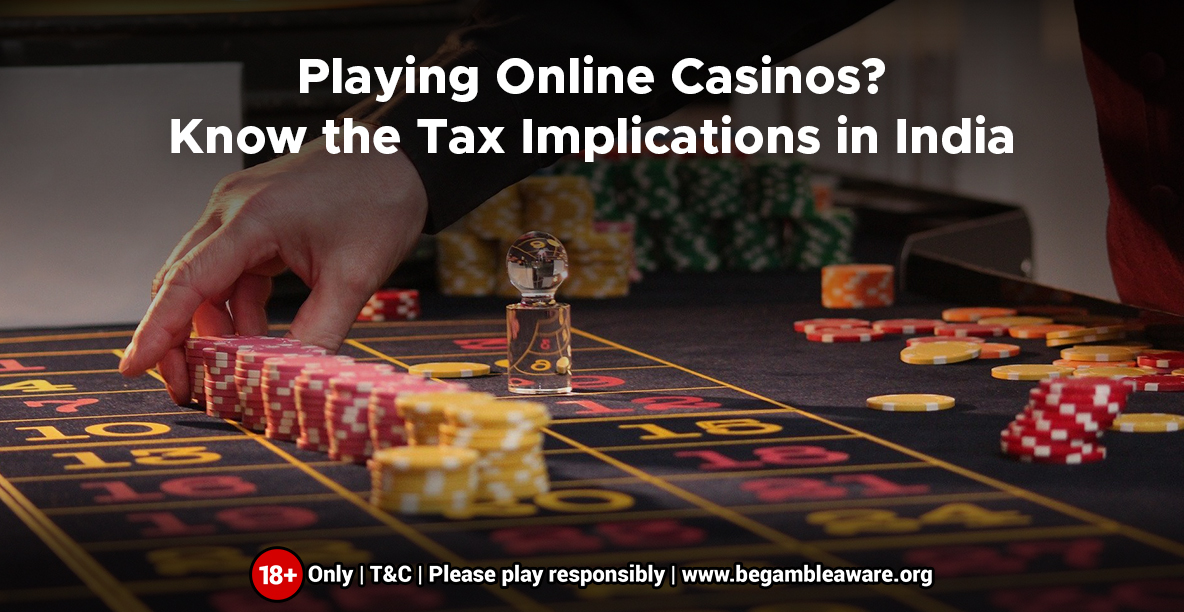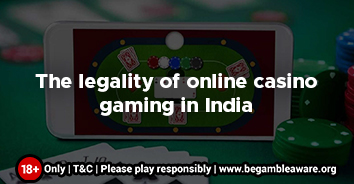
Over the previous decade, there has been a significant advancement in the online casino sector. It has also grown in popularity as a result of the availability of low-cost internet and the widespread accessibility of smartphones. As a result, the online casino sector has invested in businesses that provide attractive incentives and rewards. Players may win real money playing online games like poker, rummy, and sports betting. Being able to make real money from gaming online is a powerful motivator that draws many individuals to become dedicated gamers.
However, it is the ambiguity around gaming and its tax status that raises worries about the existing legislation on offline or online gambling. Internet gambling rose in popularity after the mid-1990s, and this trend continued in leaps following the Digital India initiative, which upgraded internet infrastructure throughout the country. Following demonetisation, online payment methods also experienced a surge in popularity. Such reasons have contributed to the fast rise in online casino gambling’s prospects as a hugely profitable business, but analysts are increasingly perplexed as to why governments have been so hesitant to legalise such a lucrative source of revenue.
The legality of online casino gaming in India
 In India, online casino gaming is a bit of a murky area. There are no particular regulations in India that prohibit internet gambling, according to the authorities. When it comes to internet gambling, it is neither legal nor prohibited in most jurisdictions. Every local state is responsible for enacting its own laws on internet gambling in its jurisdiction.
In India, online casino gaming is a bit of a murky area. There are no particular regulations in India that prohibit internet gambling, according to the authorities. When it comes to internet gambling, it is neither legal nor prohibited in most jurisdictions. Every local state is responsible for enacting its own laws on internet gambling in its jurisdiction.
As of now, only a handful of Indian states have approved state-level legislation regulating internet gambling. For instance, the government of Maharashtra has chosen to outlaw all forms of gambling, both offline and online, inside its borders.
On the other side, states such as Sikkim and Goa have ventured so far as to allow gaming in a strictly controlled environment. There are real-world casinos that are open and running in both states, attracting gamblers from all across India to participate.
Due to the fact that the rules were drafted long before the internet was invented, there is nothing expressly prohibiting Indian players from participating in online gambling. There is only one requirement: the online casino must be hosted somewhere other than in India.
Most people who wish to play casino games in India will have to do so at any online casino. While it is illegal to play at a land-based casino in most jurisdictions, it is allowed to play online from nearly any state.
Online casinos are only allowed to operate legally in India if they are based in another nation. To avoid trouble, make absolutely sure you verify the local state regulations; unfortunately, internet casinos are banned in a few places.
However, keep in mind that while internet gambling is banned in some places, no one has ever been prosecuted for it, implying that it isn’t actually in effect. Since it is highly improbable that you would be penalised, it is more of a moral matter than a legal one. Let’s take a look at the laws passed in India from time to time regarding gambling of any nature:
- Public Gambling Act 1867
The Indian government determined in 1867 that public gambling establishments, which had been springing up all across the nation unchecked, ought to be shut down. In order to address that, they implemented the Public Gambling Act in 1867.
It banned and established the penalty for operating a public gambling institution as centralised legislation. Offshore gaming, on the other hand, is not mentioned in the statute.
Nothing in the legislation expressly indicates that internet gambling with a gaming business headquartered outside of India is prohibited.
- Information Technology Act 2000
The Information Technology Act of 2000 was drafted in response to the government’s awareness that they needed to develop legislation to deal with cybercrime. The legislation identifies and defines crimes in the digital world and sets punishments for committing them. The absence of reference to online gambling in the Act means it is up to the courts to determine it. Thus far, the Act has not been utilised to punish internet gambling in any court.
- State laws on online and offline gambling
Despite the fact that the Public Gaming Act applies to gambling throughout the country, each state has the authority to alter or adjust gambling regulations on a state-by-state basis. For this reason, legal land-based casinos are permitted in states such as Sikkim, Daman and Goa. Gaming regulations vary significantly from state to state, ranging from extremely free (as in Goa) to extremely restrictive (as in Tamil Nadu).
Very few states have enacted legislation regarding online gaming. Meaning that you may place your wagers without fear of repercussions while doing so over the internet.
What is the tax on online gambling winnings in India?
It is still unclear what India’s tax regulations are for gambling, both in brick-and-mortar establishments and online casinos. The obsolete Public Gaming Act of 1867 establishes the standards and classifications for gaming levies; nevertheless, numerous other legislative instruments define the cornerstone for Indian taxation on gambling.
It is specified under Section 115BB of the Income Tax Act of 1961, which governs India’s income tax, that whatever earnings from race betting, crossword puzzles, lotteries, card games including Teen Patti, Andar Bahar, internet rummy, as well as similar games, and any gains from wagering or gambling of any kind or type are subject to a basic rate of 30% taxation. Furthermore, under Section 58(4) of the ITA, no deductions or expenses may be claimed against such revenue.
Prize money and wins are subject to income tax
If you win money, you will be taxed at a flat rate of 30%, minus cess and surcharge, and you will not be eligible for the basic exemption limit. When the prizes reach INR 10,000 per game, the platform will be required to deduct taxes under Section 194B of the ITA. Tax Deducted at Source (TDS) would be displayed on Form-26AS of the user when the platform takes TDS at payment time. The TDS can be claimed by the user when completing their tax return.
There are no deductions or expenses allowed
The most important element is that income tax must be paid on the whole earnings, with no deductions for any expenses or allowances permitted in calculating the income from gambling or fantasy sports winners. Although the term “winnings” was defined by the CBDT in its circular no. 240 of 1978 to imply gross earnings less the capital paid in the form of a wager, the definition was changed in 1995 when Section 58(4) of the ITA was introduced. Since then, it has been determined that no deduction for such expenditures as bets paid or entrance fees would be permitted.
What about the Goods and Services Tax on online gambling?
As part of the standardised goods and services tax (GST), the central, as well as state governments of India imposed a 28% tax rate on all entertainment events and services, including racetracks, casinos, and the services that are associated with them, in 2017.
Are there any cess or surcharges on gambling winnings?
A handful of levies and tax stipulations are based on income categories in conjunction with the uniform 30% tax on income from gambling. For example, gaming earnings over INR 50 lakh are subject to a 10% surcharge on top of the usual tax rate. Furthermore, gambling revenue above INR 1 crore – like lottery prizes – is subject to a 15% surcharge on top of the regular tax rate, raising the amount to 34.5%. A 4% ‘Health and Education Cess’ is also charged, which is applied to the payable tax, not based on the due earnings or income.
Tax advice for Indian online casino players
The legality of gambling in India should not be a concern for punters and players. However, if you have made money from an online gambling provider, you must reveal and disclose it to the IRS when filing their Income Tax Returns. To gamble without any hassle and avoid tax problems, you must declare the exact amount of money you earned from an online casino while completing your yearly tax return.
Players from India should stay clear from the fraudulent and illegitimate sites that are springing up around the globe. It is critical to choose a reputable online gambling platform or application.
To summarise
The truth is that regulations cannot always keep up with technological advancements. The Public Gaming Act of 1867 is no longer amended to include modern forms of gaming, such as online casinos.
Online casino winnings are taxed in India. Thanks to technical developments, online casinos have made it feasible for players to wager legitimately and securely while remaining compliant with income tax rules. But you have to keep in mind to visit and play with legitimate, licensed and regulated online casinos to avoid problems while getting your winnings to your account.






